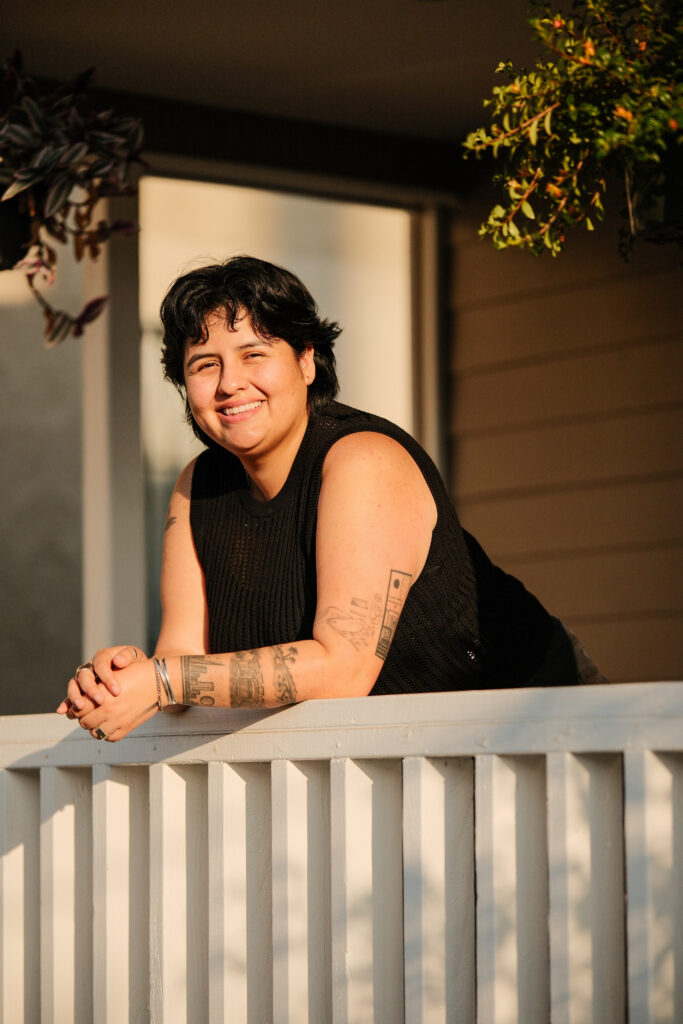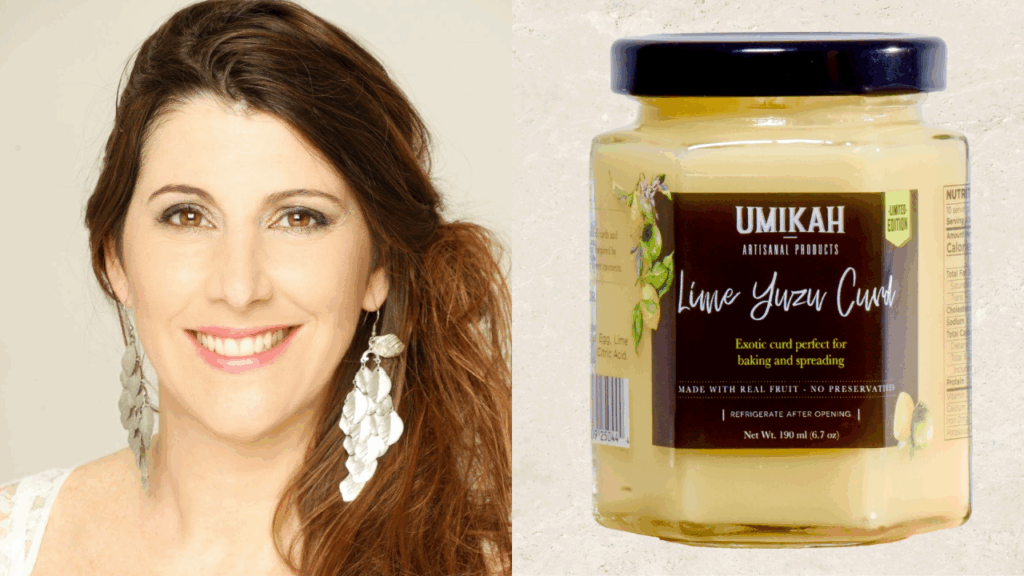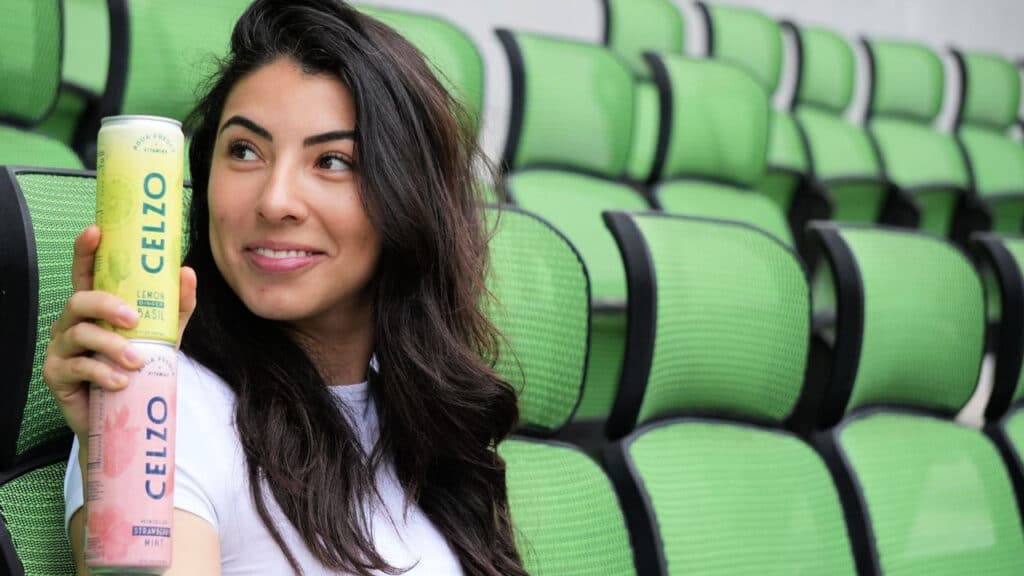Gabriela Gironas Is the Latine Strategist Big Brands Call When They Want to Get It Right
What if your job wasn’t to make content, but to change the way the entire industry values it?
That’s the energy Gabriela Gironas (they/them) brings to the table every single day. Whether leading Creator Strategy at Wasserman or pushing for systemic change as Global Chair of Diversity, Inclusion, and Community at Women In Music, Gironas isn’t here to fit into old models. They’re building new ones. The Forbes 30 Under 40 honoree has helped shape some of the most forward-thinking partnerships across music, tech, and culture, from BTS and Taco Bell to Arlo Parks and Google Play.
But as they told FIERCE in an exclusive interview, the real work happens behind the scenes. And it’s about much more than visibility.
For Gabriela Gironas, “creator-first” means giving up control
Many brands still get this wrong. They want the cool factor of a content creator, without relinquishing the power that comes with letting them lead. Gironas put it clearly:
“A lot of brands think that just featuring a creator in a campaign is enough. But a real creator-first strategy means the creator helps shape the narrative, not just appear in it.”
They explained that it’s especially critical for marginalized voices, where visibility often masks deeper erasure.
“It’s similar to tokenism—just because someone is visible doesn’t mean they’re being valued. Visibility without agency doesn’t move culture forward,” they said.
In other words, creators—especially those from historically excluded communities—need to lead with their own lens. The job of a strategist, according to Gironas, is to create the conditions for that to happen.

Growing up queer and Latinx shaped how Gabriela Gironas leads
Gironas doesn’t believe in one-size-fits-all leadership. Their approach to building teams and strategy is deeply informed by lived experience navigating spaces that weren’t built for them.
“My identity isn’t one thing, it’s layered, and that’s been the biggest influence on how I lead,” they said. “I try to meet people where they are, assume complexity in others, and lead with empathy.”
They also shared what they’ve had to unlearn to thrive in tech and entertainment.
“I’ve had to unlearn the idea that I need to over-explain or shrink myself to make others comfortable.”
That’s something many queer and Latinx professionals can relate to: the pressure to be palatable. Gironas resists that. And in doing so, they give others permission to show up fully, too.
What inclusive innovation actually looks like in 2025
You’ve heard the buzzwords. But what does it really mean to build equitable systems in culture and media?
“Real inclusive innovation starts long before a campaign goes live,” Gironas said.
It begins in the brainstorms. Who’s in the room? Who has decision-making power? Gironas believes that inclusion must be built into the operations, not tacked on as a feel-good afterthought.
“It means bringing in diverse Creators, strategists, and team members from the very beginning… It looks like rethinking what ‘best-in-class’ means through a more global, more nuanced lens.”
They also want to see better metrics. If we don’t track compensation, credit, and cultural impact, we’re not doing the work. As they put it: “Inclusion needs to be operational, not just aspirational.”

The BTS billboard moment that reminded Gabriela Gironas why this work matters
When asked about a behind-the-scenes memory that stuck with them, Gironas didn’t hesitate. It involved BTS, Reddit, and fans who got to design billboards that went up in Los Angeles and New York City.
“When they saw them in the wild, the reaction was pure chaos in the best way. Threads exploded. People were sending photos, screaming, celebrating.”
Gironas lit up recalling that moment. Not because of celebrity or brand wins, but because it centered fans as creative voices.
“It was about showing people that it’s okay to care loudly, to be weird and enthusiastic and fully yourself.”
That’s the ethos guiding their work: building spaces where joy, weirdness, and identity are all welcome.
What Gabriela Gironas tells the next gen of creators
Gironas isn’t just leading. They’re constantly mentoring through orgs like SheSaid.So, ShowUp and Keychange U.S. When we asked what advice they give to young professionals who feel out of place, their answer was simple but profound:
“Your gut doesn’t always shout; sometimes it whispers,” they said. “Start listening to that quiet confidence.”
In a world full of gatekeepers and imposter syndrome, that message hits.
“One day, you’ll realize the only voice telling you that you don’t belong was someone else’s, not yours.”
It’s the kind of real talk we need more of in boardrooms, brainstorms, and everywhere in between.




